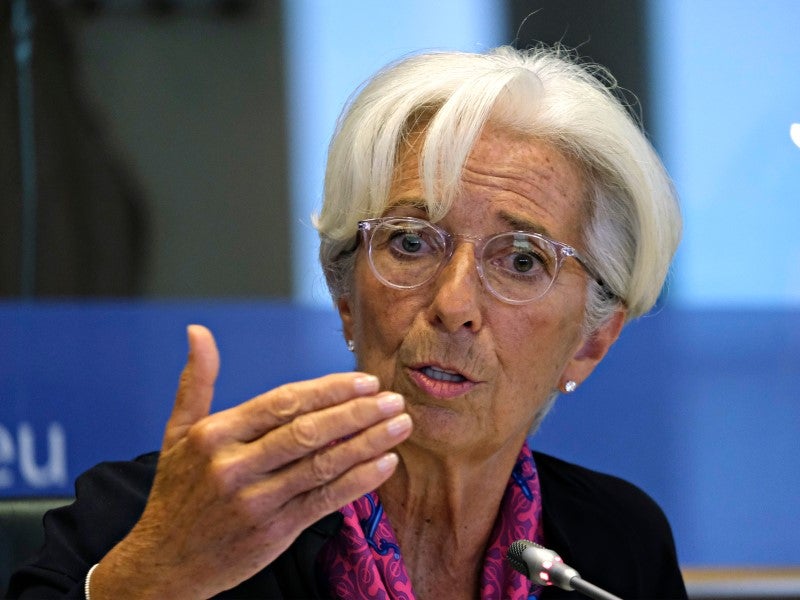
A proposal by the European Central Bank (ECB) for a bad bank to deal with a surge in non-performing loans (NPLs) has met with opposition within the European Commission (EC), according to recent press reports.
With Covid-19 expected to usher in a wave of NPLs as businesses default on their loans, the ECB has proposed removing toxic debt from bank balance sheets and putting them in a bad bank.
In April, the Financial Times reported that some EU officials had opposed the idea on the grounds of fairness. To pass, the proposal requires consensus among the EU’s 27-member nations.
Discussions about risk-sharing in the Eurozone have previously exposed a north-south divide among member states, with frugal nations in the north, led by Germany, refusing to share risk with southern nations. Regarding the bad bank proposal, southerners are seen to be overburdened by NPLs on their books.
“There is significant hostility from ‘the frugal four’ [Austria, Denmark, Sweden and the Netherlands] in creating supranational debt in the form of Coronabonds. In the UK, the BoE is funding most of this debt for now,” says Katherine Long, retail banking associate analyst for GlobalData Financial Services.
“This means that the ECB will either have to remove bank regulation, which it is doing and could be storing up problems in the future, or governments will have to act nationally to incentivise banks or lend the money themselves.
How well do you really know your competitors?
Access the most comprehensive Company Profiles on the market, powered by GlobalData. Save hours of research. Gain competitive edge.

Thank you!
Your download email will arrive shortly
Not ready to buy yet? Download a free sample
We are confident about the unique quality of our Company Profiles. However, we want you to make the most beneficial decision for your business, so we offer a free sample that you can download by submitting the below form
By GlobalData“Countries like Germany are likely to be able to do this, others, such as Greece, will struggle significantly. The only other alternative would be to let bad banks fail, though that would probably happen out of accident, rather than design,” says Long.
While NPL ratios have declined in Europe in recent years, a number of European countries have continued to struggle with toxic debt from 2008.
According to the ECB, the Eurozone’s total NPLs have come down from about €1 trillion in 2014 to €580bn at the end of 2019.
The Financial Times recently reported that in Q4 2019 bad loans on the balance sheets of Greek banks stood at 35%, the highest of any Eurozone country. This was followed by Cypriot (17%), Portuguese (7.2%), Italian (6.7%), Slovenian (3.7%) and Irish (3.2%) banks. The Eurozone average was 3.2%.
The ECB’s bad bank idea has faced stiff opposition on the grounds that it would distort EU fair competition rules by granting financial help to some companies but not others.
The FT reported that: “European Commission officials are reluctant to waive EU rules requiring state aid for banks to be provided only after a resolution process imposes losses on their shareholders and bondholders.”
‘In the world of asset finance & leasing, not all participants currently account under IFRS 9’
Over the next year or so corporate defaults will undoubtedly increase, whether through the various recovery and survival loans or because of massively changing consumer spending, says Lindsay Town, chief executive of IAA-Advisory.
“Adding in the international challenges of trade friction with countries such as China and any last-minute ‘Brexit surprises’ we can forecast a somewhat stressed near-term picture. Whilst the ‘bad bank’ proposals can have merit they also bring some really difficult issues as well,” he says.
On the principle that no government (in or out of the EU) will just ignore loans made, then a recovery and collections mechanism is needed, on a scale that has probably never been seen before. Additionally, there are many non-bank lenders who have been participating in providing finance at times of need, he says.
There is little said currently about how they will be treated and whether they would be swept up in a solution for the banking community. At a practical level several issues arise that may also have distorting effects on how NPLs are treated, he adds.
“From an accounting perspective, we have the increasingly challenging area of IFRS 9 which deals with provisioning. However, in the world of asset finance not all participants currently account under this provision, being under the broad set of accounting rules in FRS 101 and not FRS 102. Those having to adopt IFRS 9 may show very different provisioning approaches and both need very careful, but subtly different, analysis to come to the right provision and recovery calculations,” says Town.
He warns: “Collections mechanisms where there is explicit government support will need to have extremely careful attention paid to process, records and outcomes. All government process is bureaucratic by nature and it would be a horrendous outcome for a lender to fall foul of process rules and lose the benefit of any government guarantee, or a massive delay in pay out.
“The near term need for our industry will focus on high-quality collections teams, improved risk process and data analysis and a very close relationship with government. All at a time when resources for many are stretched and businesses are seeking to recover the drop in new business that almost all have witnessed,” he says.







